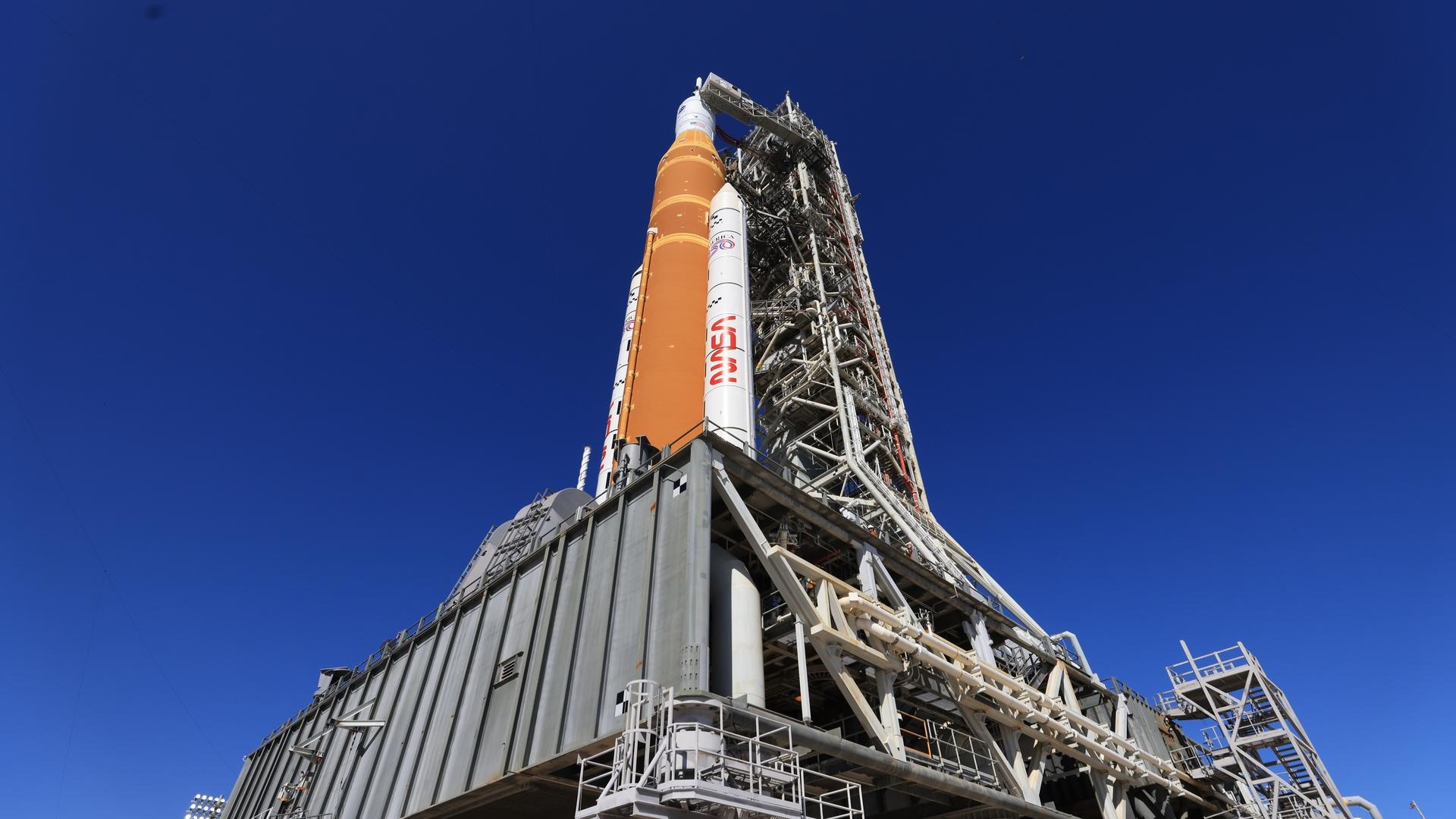Senate Panel Recommends Funding Boost for NASA
Breaking space news, the latest updates on rocket launches, skywatching events and more!
You are now subscribed
Your newsletter sign-up was successful
Want to add more newsletters?

Delivered daily
Daily Newsletter
Breaking space news, the latest updates on rocket launches, skywatching events and more!

Once a month
Watch This Space
Sign up to our monthly entertainment newsletter to keep up with all our coverage of the latest sci-fi and space movies, tv shows, games and books.

Once a week
Night Sky This Week
Discover this week's must-see night sky events, moon phases, and stunning astrophotos. Sign up for our skywatching newsletter and explore the universe with us!

Twice a month
Strange New Words
Space.com's Sci-Fi Reader's Club. Read a sci-fi short story every month and join a virtual community of fellow science fiction fans!
WASHINGTON -- NASA's vision for space exploration received a boost in the Senate Sept. 21 when a budget panel approved $16.38 billion for the agency for next year, $200 million more than the White House requested.
The Senate Appropriations Committee had been poised to recommend providing just $15.579 billion for NASA next year, $200 more than the agency's 2004 budget and some $665 million less than the White House requested. But an amendment offered by Sens. Barbara Mikulski (D-Md.) and Kay Bailey Hutchison (R-Tex.) to add $800 million of so-called emergency funding for the space shuttle program and a Hubble Space Telescope servicing mission was approved, resulting in the higher number.
The space shuttle program would receive $500 million of the added funding to help defray the cost of returning the fleet to flight status. The remaining $300 million would go toward the early planning for a robotic mission to service the Hubble Space Telescope.
Including the emergency funding, the Senate bill would provide a total of $4.8 billion for the space shuttle program. The international space station would get $1.6 billion, about $120 million less than NASA asked for in its request, which was sent to Congress in February.
Senate appropriators also approved $268 million for NASA to get started on the Crew Exploration Vehicle and $20 million to begin designing of a robotic lunar exploration mission. Both projects are priorities under the space exploration vision laid out by U.S. President George W. Bush in January.
The Senate's proposed NASA budget -- included in a $128 billion spending bill that also funds veterans' benefits, housing programs, environmental protection and other programs -- stands in marked contrast to the counterpart bill approved by the House Appropriations Committee this summer. The House bill would trim $1.1 billion from the NASA request and deal a serious blow to the agency's space exploration ambitions.
The House and Senate must reconcile the differences in their respective bills to finalize NASA's 2005 budget. Congressional sources said the budget wrangling is likely to continue well into the fall and possibly into next year.
Breaking space news, the latest updates on rocket launches, skywatching events and more!
Brian Berger is the Editor-in-Chief of SpaceNews, a bi-weekly space industry news magazine, and SpaceNews.com. He joined SpaceNews covering NASA in 1998 and was named Senior Staff Writer in 2004 before becoming Deputy Editor in 2008. Brian's reporting on NASA's 2003 Columbia space shuttle accident and received the Communications Award from the National Space Club Huntsville Chapter in 2019. Brian received a bachelor's degree in magazine production and editing from Ohio University's E.W. Scripps School of Journalism.
